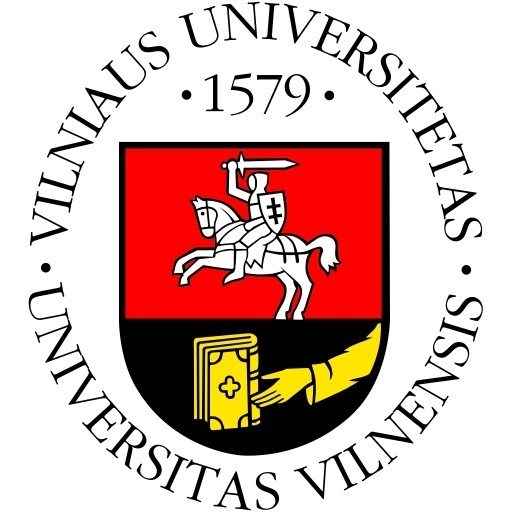Photos of university / #ismuniversity
The Financial Economics program at the University of Management and Economics is designed to prepare students for a dynamic and rapidly evolving financial landscape. This comprehensive curriculum combines fundamental principles of economics with specialized knowledge of financial markets, instruments, and institutions. Throughout the program, students gain a deep understanding of how financial systems operate, including the functioning of stock and bond markets, banking, and investment management. The program emphasizes analytical skills, quantitative methods, and economic theory to enable students to make informed decisions and develop innovative financial strategies. Courses cover topics such as corporate finance, risk management, financial modeling, macroeconomic analysis, and behavioral finance, providing students with a well-rounded education that bridges theory and practice. The program also focuses on practical skills such as data analysis, financial software proficiency, and critical thinking, preparing graduates to excel in roles within banking, investment firms, consulting agencies, and corporate finance departments. Students benefit from internships and collaborative projects that foster real-world experience and industry connections. The faculty comprises experienced professionals and academic experts dedicated to providing high-quality education and mentorship. Graduates of the Financial Economics program are equipped to pursue careers in financial analysis, asset management, financial consulting, or further academic research. Additionally, they develop the analytical mindset necessary to adapt to the changing financial environment and to contribute effectively to the financial sector’s growth and innovation. This program is ideal for students interested in a challenging, career-oriented education that combines economic theory with practical financial skills to thrive in the global financial marketplace.
Programme courses
I Semester (Fall):
Research Methodology
Financial Intermediation
Microeconomic Analysis
Asset Pricing
Applied Business Ethics
II Semester (Spring):
Advanced Macroeconomics
Mathematical Finance
International Finance
Financial Econometrics
Alternative Investment and Risk Management
III Semester (Fall):
Advanced Corporate Finance
Project Finance
Financial Derivatives
Monetary Policy
Behavioural Finance
IV Semester (Spring):
Thesis
The key objective of ISM Graduate Studies is to equip students with innovative decision-making tools and strengthen their ability to identify, reflect upon, and respond to new challenges in management, finance, and economics that modern organizations are facing today.
|
Admission criteria
|
Coefficient |
|||
|
Motivation interview;
|
3,5 | |||
|
Upper Intermediate or higher level of English skills Qualifying results: ISM test
|
2,0 | |||
|
Weighted average of all marks listed in the university education diploma supplement (including the mark for the final thesis and/or final examination).
|
2,5 | |||
|
Evaluation of an essay
|
1,5 | |||
|
Participation in academic activities (conferences, publication of articles.)
|
0,5 | |||
|
Additional points: certificate for ISM lecturesfor students.
|
0,5 |
| Eligibility |
|
University education in any subject (sub-)area. At least 18 ECTS credits in subjects of the field of management/economics (see Annex 1 for the list of recommended subjects). Only for International Marketing and Management / Financial Economics programmes. |
|
ISM Scholarships for International Applicants ISM Scholarships are awarded to the international applicants to cover tuition fee (30-100%).
The ISM Scholarships are merit based and are extended automatically every semester upon the condition that the scholarship holder has passed all the courses, has no penalties (as defined in Regulations of Graduate Studies) and has CGPA 8 or more.
|
|||
|
State scholarships for International students: A monthly scholarship and scholarship and benefit to cover the study price is offered for the nationals of Belarus Republic, Republic of Georgia, Republic of Moldova, Republic of Ukraine, and foreign citizens of Lithuanian descent (15 grants altogether); A monthly scholarship is offered for the nationals of the Republic of Armenia, Republic of Azerbaijan, Republic of Kazakhstan, Republic of Uzbekistan and People's Republic of China (12 grants altogether). |
Financial Economics at the University of Management and Economics offers a comprehensive academic programme designed to equip students with a solid foundation in economic theory, financial analysis, and quantitative methods. The programme aims to prepare graduates for careers in banking, investment, financial consulting, and economic research, providing them with the skills necessary to analyze financial markets, assess economic risks, and make informed financial decisions. The curriculum typically includes courses in microeconomics, macroeconomics, financial markets and institutions, corporate finance, investment analysis, econometrics, and risk management. Emphasis is placed on both theoretical understanding and practical application, with opportunities for internships, case studies, and research projects. Students are encouraged to develop strong analytical and problem-solving skills, as well as proficiency in data analysis tools and financial software. The programme often collaborates with financial industry partners, offering students exposure to real-world financial issues and networking opportunities through seminars, workshops, and industry visits. Graduates of the programme are expected to possess a thorough understanding of how financial systems operate within the broader economic context, as well as the ability to evaluate financial instruments and strategies critically. The degree is suitable for individuals interested in pursuing advanced studies or a professional career in finance, economics, or related fields. The University’s multidisciplinary approach combines economic concepts with practical financial management skills, fostering a well-rounded educational experience. Specializations or elective courses may include areas such as financial risk management, international finance, banking, or investment banking. The programme typically spans about four years, culminating in a bachelor’s degree, with some programmes offering master's or doctoral pathways for further specialization. Admission criteria generally require a strong background in mathematics and economics, along with relevant exam scores. Graduates often find employment in financial institutions, governmental agencies, international organizations, or undertake postgraduate studies to deepen their expertise.



